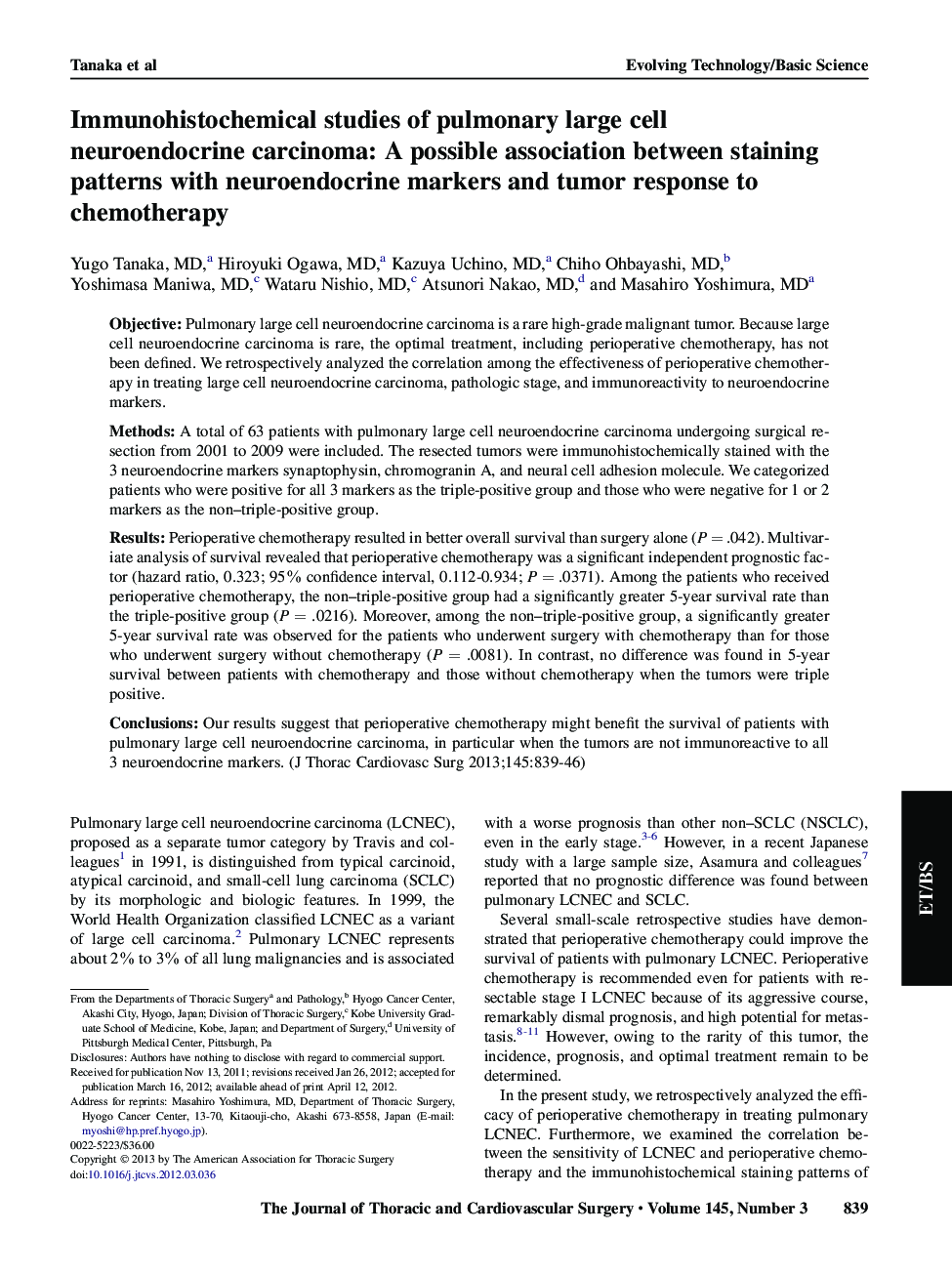| Article ID | Journal | Published Year | Pages | File Type |
|---|---|---|---|---|
| 2981134 | The Journal of Thoracic and Cardiovascular Surgery | 2013 | 8 Pages |
ObjectivePulmonary large cell neuroendocrine carcinoma is a rare high-grade malignant tumor. Because large cell neuroendocrine carcinoma is rare, the optimal treatment, including perioperative chemotherapy, has not been defined. We retrospectively analyzed the correlation among the effectiveness of perioperative chemotherapy in treating large cell neuroendocrine carcinoma, pathologic stage, and immunoreactivity to neuroendocrine markers.MethodsA total of 63 patients with pulmonary large cell neuroendocrine carcinoma undergoing surgical resection from 2001 to 2009 were included. The resected tumors were immunohistochemically stained with the 3 neuroendocrine markers synaptophysin, chromogranin A, and neural cell adhesion molecule. We categorized patients who were positive for all 3 markers as the triple-positive group and those who were negative for 1 or 2 markers as the non–triple-positive group.ResultsPerioperative chemotherapy resulted in better overall survival than surgery alone (P = .042). Multivariate analysis of survival revealed that perioperative chemotherapy was a significant independent prognostic factor (hazard ratio, 0.323; 95% confidence interval, 0.112-0.934; P = .0371). Among the patients who received perioperative chemotherapy, the non–triple-positive group had a significantly greater 5-year survival rate than the triple-positive group (P = .0216). Moreover, among the non–triple-positive group, a significantly greater 5-year survival rate was observed for the patients who underwent surgery with chemotherapy than for those who underwent surgery without chemotherapy (P = .0081). In contrast, no difference was found in 5-year survival between patients with chemotherapy and those without chemotherapy when the tumors were triple positive.ConclusionsOur results suggest that perioperative chemotherapy might benefit the survival of patients with pulmonary large cell neuroendocrine carcinoma, in particular when the tumors are not immunoreactive to all 3 neuroendocrine markers.
